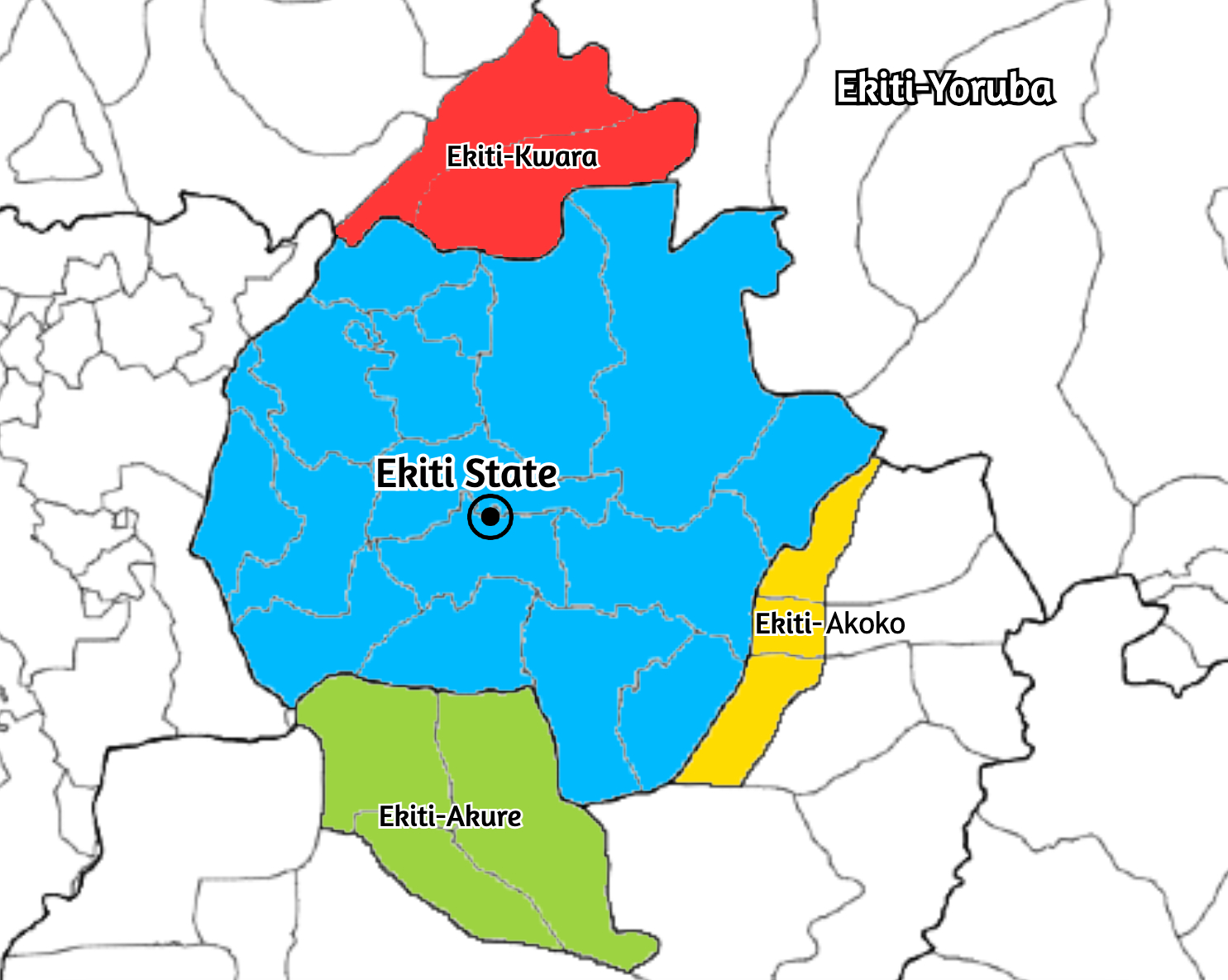Ekiti State
States Jan 03, 2025

Table of Contents
History and Overview of Ekiti State, Nigeria
Ekiti State, located in the southwestern part of Nigeria, is one of the country’s 36 states and is renowned for its rich cultural heritage and historical significance. Created on October 1, 1996, by the then military government of General Sani Abacha, Ekiti State was carved out of the old Ondo State. The state derives its name from the term “Okiti,” which means “hill” in the Yoruba language, a fitting name since Ekiti is known for its undulating landscapes and rolling hills.
Geography and Demographics
Ekiti State is bordered by Kwara State to the north, Kogi State to the northeast, Osun State to the west, and Ondo State to the south and southeast. Covering an area of approximately 6,353 square kilometers, the state is home to a population of over 2.7 million people, according to the 2006 census. The people of Ekiti are predominantly of Yoruba ethnicity and speak a dialect of the Yoruba language known as Ekiti Yoruba.
The state is divided into 16 local government areas (LGAs), with Ado-Ekiti serving as the capital and largest city. Other major towns in Ekiti State include Ikere-Ekiti, Ikole-Ekiti, Ijero-Ekiti, and Ilawe-Ekiti.
Historical Background

The history of Ekiti people is deeply rooted in Yoruba mythology and oral traditions. According to legend, the Ekiti people are descendants of Oduduwa, the legendary progenitor of the Yoruba race. Historical accounts suggest that the Ekiti region was one of the earliest settlements of the Yoruba people, with evidence of human habitation dating back to ancient times.
In pre-colonial times, Ekiti was made up of independent kingdoms, each ruled by an Oba (traditional ruler). These kingdoms shared a common ancestry and cultural practices but operated autonomously. Prominent among these kingdoms were Ado, Ikere, Ijero, and Oye. The Ekitis were known for their resistance to external domination, particularly during the Yoruba internecine wars of the 19th century.
Ekiti’s integration into modern Nigeria began with the British colonization and the establishment of a protectorate in the early 20th century. The region became part of Ondo Province under British administrative rule and later part of the Western Region after Nigeria’s independence in 1960. Ekiti State eventually gained autonomy in 1996, marking a significant milestone in its development.
Cultural Heritage
Ekiti State is a hub of Yoruba culture, with a rich array of traditions, festivals, and art forms. The people are known for their deep respect for customs and traditions, which are evident in their daily lives and communal activities. Traditional attire, music, and dance play a significant role in Ekiti’s cultural identity.
One of the most notable festivals in Ekiti is the Udiroko Festival, celebrated annually in Ado-Ekiti. This festival marks the beginning of the traditional calendar year and serves as a unifying event for the people of the state. The Ikere-Ekiti Ogun Festival and the Ijero-Ekiti Egungun Festival are other significant cultural events that showcase the state’s vibrant heritage.
Ekiti is also famous for its traditional arts and crafts, including pottery, weaving, and beadwork. These crafts not only serve functional purposes but also reflect the artistic ingenuity of the people.
Educational Development
Ekiti State has earned the nickname “The Fountain of Knowledge” due to its emphasis on education and the high literacy rate among its populace. The state is home to several reputable educational institutions, including Ekiti State University (EKSU), Afe Babalola University, and the Federal Polytechnic, Ado-Ekiti. These institutions attract students from across Nigeria and contribute significantly to the state’s intellectual and economic growth.
Economic Activities
The economy of Ekiti State is primarily agrarian, with agriculture serving as the main source of livelihood for the majority of its residents. The fertile soil and favorable climate support the cultivation of crops such as yam, cassava, maize, rice, and cocoa. Ekiti is also known for its palm oil and timber production.
In recent years, the state government has made efforts to diversify the economy by promoting tourism and small-scale industries. Ekiti’s natural attractions, such as the Ikogosi Warm Springs, Erin Ayonigba Sacred Fish River, and the Arinta Waterfalls, have become popular destinations for tourists seeking to explore the state’s scenic beauty and cultural heritage.
Governance and Administration
Since its creation, Ekiti State has been governed by both military administrators and civilian governors. The state operates a three-tier system of government, comprising the executive, legislative, and judicial branches. The traditional institution, led by the Council of Obas, also plays an influential role in local governance and dispute resolution.
The capital city, Ado-Ekiti, serves as the administrative and political hub of the state. Successive governments have focused on infrastructure development, healthcare, and education, aiming to improve the living standards of the people.
Conclusion
Ekiti State stands out as a land of rich history, cultural heritage, and natural beauty. Its people are known for their resilience, intellectual pursuits, and commitment to preserving their traditions. As the state continues to develop and embrace modernity, it remains a shining example of Nigeria’s diverse cultural and historical landscape. Whether for its scenic attractions, educational institutions, or vibrant festivals, Ekiti State offers a unique blend of history and culture that continues to captivate locals and visitors alike.
